On this page:
- Alternative education and Open School
- History of Open School
- Goals and unique character of the school
- Graduates
- School development and future plans
- Non-violent communication
- The Otwieracze Foundation

Alternative education and Open School
Our Kids: How do you define alternative schools?
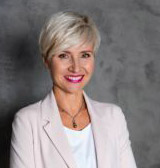 Anna Kozicka: For me, this term implies a different, new, and out-of-the-box way of thinking about school and education, going significantly beyond what's proposed by the standard system of education. The more something departs from standard thinking and educational practices, the more alternative it is, in my view. Alternative education is bold, it breaks the patterns and what’s most important to me—it focuses not only on acquiring knowledge, but above all, on the development of the child as an individual.
Anna Kozicka: For me, this term implies a different, new, and out-of-the-box way of thinking about school and education, going significantly beyond what's proposed by the standard system of education. The more something departs from standard thinking and educational practices, the more alternative it is, in my view. Alternative education is bold, it breaks the patterns and what’s most important to me—it focuses not only on acquiring knowledge, but above all, on the development of the child as an individual.
There are many different trends in alternative education—including what’s called "unschooling." A famous example is Andre Stern, who grew up with a wonderful, inspiring father and never attended a regular school. His parents were freelancers and were able to educate him themselves. We also have a trend of democratic schools, in which children largely decide what classes they want to choose, and where they are given a lot of choice and freedom.
Education is focused more on acquiring competencies than academic knowledge. In Poland, more and more parents choose homeschooling, which, in my opinion, falls within the concept of alternative education, despite the fact that some children larn very traditional content at home. There are also forest schools, in which the child experiences the world and learns by communing with nature in wooded areas. All day long, all the activities, regardless of the weather, are held outdoors.
A custom-designed school (szkoła autorska), i.e., one that implements its own original ideas of education of what a school can look like, also falls within the realm of alternative education. These schools do not adhere to any one particular trend, but choose the best elements from different approaches, often adding their own innovative solutions. And this is how their own model of a modern school is created, which usually, apart from the purely educational aspect, places great emphasis on the development of social skills and competencies useful for the future, i.e., it prepares children for life rather than just taking exams. Our Open School is such a school.
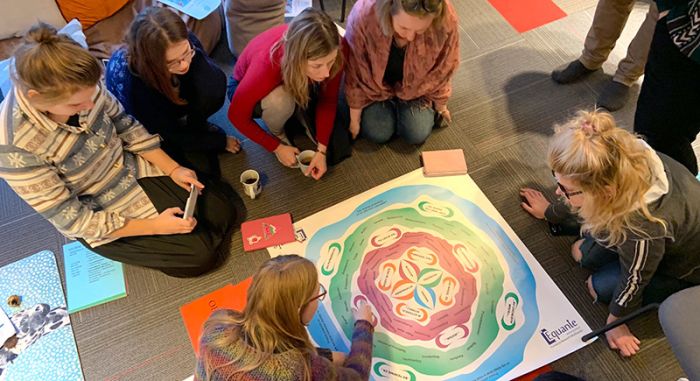
Alternative education is a response to the growing awareness of parents and the appetite for a different education, different from what school usually looks like and what happens in it. It’s a protest against this unfortunate approach to children and education, completely detached from real life, like that old Prussian model from 200 years ago, while the world has gone so much forward. School does not keep up with what children need to be able to function well in the modern world. That’s why kids often don’t like school, lose their motivation because they don’t see any sense in what they do at school.
In addition, they’re subjected to extensive pressure (results, grades) in a very narrow thematic scope (academic subjects), which limits their ability to discover what they’re good at and what their strengths are. Traditional school mainly focuses on what children don’t know and can’t do yet. Children are very rarely empowered at school or hear anything positive about themselves. I think that we, as adults, wouldn’t be able to endure such work for even a year, and kids remain in such an environment for many years.
Our Kids: Do alternative schools have to follow the standard requirements imposed by the Polish Ministry of Education, for example, follow the core curriculum?
Anna Kozicka: Yes, even when implementing its own program, the school is obliged to do it in such a way that the classes, projects, or other educational programs contain content from the core curriculum. In alternative education, in custom-designed schools, we have this wonderful possibility that we have time and space not to limit ourselves to the core curriculum. So we can introduce a broader scope, e.g., introduce classes to develop kids’ special talents, conduct sessions on learning techniques, offer interpersonal communication workshops, and much more.
Some concerned parents often ask me: “But is the core curriculum implemented?” I smile then, because the implementation of the core curriculum isn’t a big challenge. When you read it, it turns out to be quite flexible (except for some outdated content that can be dealt with). The problem in Polish traditional schools is that too much attention is paid to ready-made curricula created on the basis of the core curriculum, often based on boring textbooks. Programs are overloaded.
Of course, the core curriculum itself requires a complete overhaul, but this is a different topic. I believe that I will see this change in my lifetime. In our custom-designed Open School, we choose from the core curriculum the most important elements, preparing kids for exams, but we also have time for children to learn much more important things, so that they can gain life skills.
The Polish education system, unfortunately, puts the main emphasis on transferring knowledge and on control: "whether what is taught has entered the student’s head." There’s no room for inspiration, discovering, experimenting, and animated discussions. The school mainly prepares children for tests and quizzes and taking exams. In my school, there are no tests, there’s no such need: we have small classes, so every teacher knows exactly where each child is at, feedback is all that’s needed. We were recently amused that some of our students reported that they want to have tests next year. Their motivation is wonderful—without fear and stress, and more out of curiosity, they just want to see what it's like. So we will discuss with them what these tests should look like. Our children's voice is very important and we take it into account.
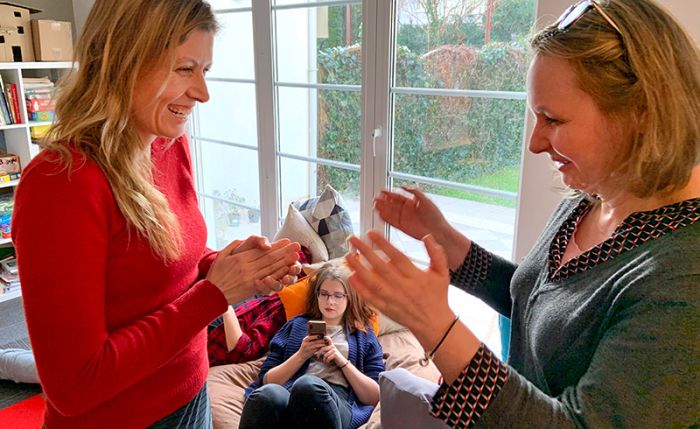
Our Kids: What are the relations of alternative schools with the Ministry of Education?
Anna Kozicka: There are two models. Some alternative schools present their own curricula and operate on the basis of educational innovation. Of course, they’re obliged to implement the core curriculum in their activities (which are often conducted differently than in traditional schools, e.g., combined into subject blocks, based on project work). In these schools, there are often no grades (more and more schools are departing from grades considering that they don’t serve children, especially younger ones), and everything is provided as feedback. The grade on the certificate in a given subject (which still has to be there, unfortunately) results from the summary of the child’s work throughout the year.
The second model we use is to create a home education facility (although education doesn’t take place at home). We’re using the regulation that parents have a duty to educate their children, but not to send them to school. More and more parents take their children out of school to educate them at home or use facilities like ours, i.e., schools that take over responsibility for the child's education. The kids are not taught by their parents, but by professional teachers. For us, this is the easiest way to legally move away from the system and implement our ideas. In our model, the child takes an exam in each subject at the end of the year to have a grade on the certificate. We cooperate with the school of Z. and J. Moraczewski in Sulejówek, which has the greatest experience with home education in Poland, and our children are formally students of this school; they also receive certificates from that institution. We don’t need to submit our curricula to the ministry—children only need to pass exams in each subject at the end of the school year.
Our Kids: Do you think such changes can be made in the public system?
Anna Kozicka: I’m an optimist and idealist and I have faith in people and a dream the system will eventually change, but it will take decades. Finland began reforming its education system 40 years ago, and now the whole world is learning from them. It will take years, but it’s possible. I also know a lot of great teachers in traditional schools who somehow cope and introduce innovations in the settings they’re in, so it's partly also a question of individual drive, though it’s definitely more difficult in such places.
In Poland, another big problem is teacher training, which unfortunately is defective. People with a teaching passion don’t always find their way to the teaching profession. Teacher training programs are very traditional, outdated, and contain too little training in children’s developmental psychology, so many teachers don't know how to follow the child's development—they only know how to teach in the traditional way.
Our Kids: How does the educational establishment, i.e., the Ministry of National Education and the authorities react to the alternative education trend? Is there any support for innovation?
Anna Kozicka: Alternative schools are not welcome, I think they are afraid of us, because we can slip out of control, and the education system is deeply rooted in the culture of control. Therefore, an alternative education institution faces many challenges. Traditional and public schools receive subsidies and can use public premises. We have to fend for ourselves, but there are also positive sides: for example, the fact that more and more, often enthusiasts, people with open minds, find their way to alternative education. Hence, in such institutions you can find many "gems," and this is one of the reasons that education in these schools is so full of joy.
Our Kids: Do you think that, for example, Waldorf or Montessori schools are also alternative schools?
Anna Kozicka: It depends. Montessori is a beautiful pedagogical philosophy from over 100 years ago, which in those days was very innovative, while if someone uses it today exactly as it was used 100 years ago, without adapting it to today's realities, we’re dealing with an orthodox approach that’s not supportive. However, if the school picks what’s best in Montessori or the Waldorf approach and creates its own model out of it, embellishing it with their own innovative approach, then it’s interesting. Some schools, unfortunately, remain in a very old-fashioned framework, and although I like to draw on good traditions, I don't think this serves the children.
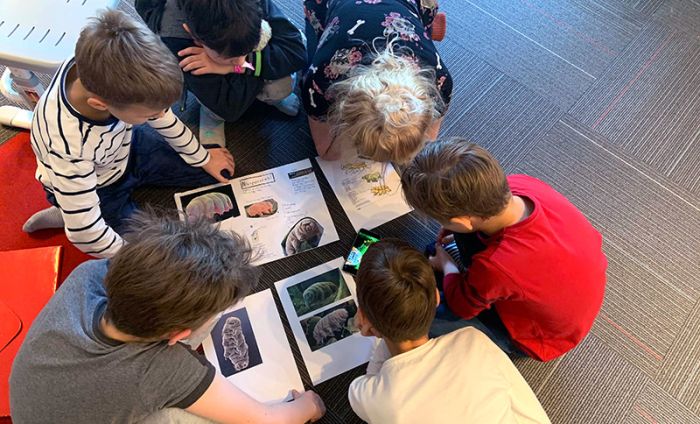
History of Open School
Our Kids: Please tell us about your way to the Open School, because it also says a lot about the school itself.
Anna Kozicka: I am not a teacher—I have been involved in business for almost 20 years, and for the last 9 years I have been professionally involved in adult education as a leadership trainer and teaching soft skills such as interpersonal communication. My adventure with education began five years ago when my son was still in kindergarten, and I began to think about his future education. I started going to various conferences on education, including those involving the minister of education, which made me realize that the change in mainstream education will not come for many years. My son Kuba went to a public school, but after a month and a half I took him out because he was fading in my eyes. Then for a long time I looked for a place that would meet my expectations. I wanted my child's well-being and I wanted him to retain his passion for exploring the world, not just have a school stuff knowledge into his head.
That's how I found a wonderful teacher Kasia Trojańska, whom I persuaded to create a homeschooling group after a year and a half. We started with a tiny school at my home. At the beginning, there were four children, but it quickly grew so large that we concluded that studying at home was not a good idea. Kasia found a place and the number of children increased so much that we moved three times. All the time I supported Kasia in running the school, at the same time working professionally, but at some point, when Kasia became seriously ill and could no longer take care of the school, I decided that I couldn't just leave it. My son felt great there. Together with Magdalena Sulińska, another mother, who is now my partner, we decided to continue running the school because we had already laid a solid foundation.
Then I made an important decision that changed the course of my professional career—I left everything I had done so far and took care of the school. We changed our location (to a beautiful house in the Warsaw district of Saska Kępa), and we reorganized the functioning of the school and its educational model. It was a big challenge, especially in Poland, where one has to struggle through various hardships and challenges.
Our Kids: When did you decide to come up with your own school model? What bothered you most about the mainstream school?
Anna Kozicka: What bothered me the most was what you see at first glance—that the focus is on the system and academics, not the child. For me, it's like the opposite of what school is for. It’s as if the system is the most important thing and the children are there for the system, not the other way around. The child is not looked at as a unique individual. It’s assumed all children learn at the same pace and the same things in the same way. It bothered me that kids can't express their dissatisfaction or ask for something else. I was hurt by the complete lack of real, genuine relationships. I believe—and I experience it in my work—that relationships are the foundation of education. It is a sine qua non condition for the child to want to learn. If relationships are built, no special methods are needed—the child is simply able to open up to what an adult proposes and draw on it (as much as they can, because each child has their own predispositions).
In my school, we focus on relationships. When something happens in a relationship, we drop everything else and deal with it, because we know that when a child is experiencing something difficult emotionally, e.g., anger, frustration, or sadness, there’s no chance for any learning to take place, because the brain won’t absorb anything at this point. In mainstream schools, this is very often ignored as if the child's brain came to school (only that part which is responsible for logical inference), and the rest of the child stayed at home.
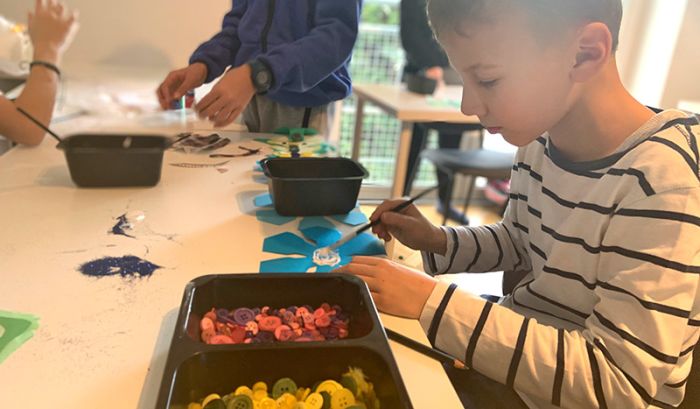
Goals and unique character of the school
Our Kids: Why would parents send their child to your Open School?
Anna Kozicka: I will give you three main reasons.
First of all, we care about the harmonious development of the child in all aspects (cognitive, emotional, social, and physical). This is particularly important because there is currently a terrifying decline in the psychophysical well-being of children in Poland, mainly in mental health. We are second, if not first, in Europe in the number of teen suicides. Of course, we know that school is not the only reason why young people have emotional problems, but knowing how overloaded children are and under what pressure they are in school, it’s impossible not to recognize that school is one of the key factors contributing to the decline in the mental health of children. In our school, our Talent Guardians are with the children all day long, we have a wonderful psychologist who works very closely with the children, parents, and staff. The activities we offer are varied, not only related to school subject education.
Secondly, we support our students in discovering their strengths and talents. We often hear how children graduate from mainstream schools feeling like they’re nobody, they don’t know what they’re good at, and they don’t have their talents and strengths recognized. We put a lot of emphasis on the fact that the graduate of our school really is aware of who they are, what they like, what they dislike, what strengths they have, but also what their weaknesses are and how they can use all that in life. In my opinion, it is the school's responsibility to ensure children obtain such information about themselves.
Third, our school employs enthusiasts. Each of our teachers or educators is an extraordinary personality, conducting classes in different ways: Marcela teaches biology through SCRUM projects, Jarek teaches history through storytelling, Krzysiek, who is a YouTuber, teaches math with the modern method of flipped classrooms, and Szura runs the Adventure and the Outdoor Traveler Club. I could go on and on. Our teachers are people who love their work and love children. They’re people who can inspire. There are no children who are interested in everything—it's normal, we give them the full right to be selective. In our school, the child will certainly gain the knowledge everyone is so concerned about, but it will not be stressful or painful. If children are relaxed, they learn differently. We don’t point out their mistakes, we don’t try to catch them on what they don’t know. An adult is there to accompany a child on their journey to discover the world, with no stress. I’m not talking about the so-called stress-free upbringing, because I’m not a supporter of that myself—kids need challenges, but within their capabilities. There’s no need to apply pressure, punishments, rewards, or unnecessary stress. In our school, children want to learn.
Our Kids: So your school has a much wider function than just imparting knowledge?
Anna Kozicka: School cannot just be about school and education itself, because nowadays it’s definitely not enough. The school must also prepare the child to go out into the world, equip them with important life skills, but also enable them to get to know themselves. We let the children be themselves, experience difficult situations, and sometimes get angry or have a bad day. We help them understand it and talk about it later.
Our staff is trained in empathetic communication, and in such situations, they can help the child understand what they’re experiencing and how to deal with it. We create conditions for children to understand themselves better and express themselves with self-respect, but also for the boundaries of others. In our school, we talk a lot about respect and understanding. We create conditions that allow a child to become a young responsible person.
Graduates
Our Kids: Do you have any graduates?
Anna Kozicka: A year ago, when we worked with Kasia Trojańska, we had two graduate classes. 98% of children were admitted to the high school of their first choice.
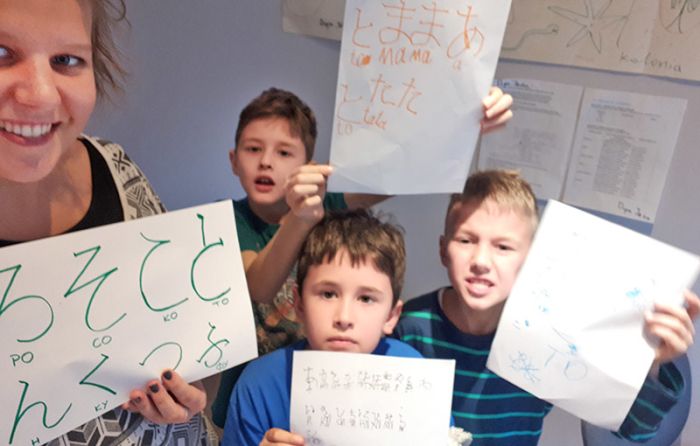
School development and future plans
Our Kids: At what stage is your school currently?
Anna Kozicka: We are a small school with 20 children and 13 staff members. Recruitment continues until the end of June—we can accept 20 more children. We have chosen a beautiful house with a garden for our locacion, with a warm, family atmosphere. We welcome families who care about change in education and who want a different school for their children. Some of them don’t even know exactly what alternative education is, but are pessimistic about the chances of change in mainstream schools.
Our Kids: Your school is growing. What are your plans?
Anna Kozicka: We have a place that can accommodate 45 children. At the moment, we have Grades 4 to 8. We plan to open an early childhood education facility and to create a school in the cloud, so that homeschooling kids from all over Poland can use the resources of our fantastic staff.
Non-violent communication
Our Kids: In the description of Open School, I also read about "Non-violent Communication". What is this?
Anna Kozicka: This is a way of communicating created by Marshall Rosenberg. Its assumption is that behind each of our messages and behaviours there’s a need that’s important to us. Speaking about your needs in your personal language without judgments and criticism allows you to communicate even in the most difficult situations. We have specialists at school who are both trainers of such education and who have undergone training in this field. When there are minor conflicts, the adult helps the children to reach a reconciliation.
The Otwieracze Foundation
Our Kids: What is the Otwieracze Foundation?
Anna Kozicka: We created this foundation as an outreach vehicle, not to be limited only to creating a school. Our mission is to support children, adolescents, and adults in acquiring the skills necessary for them to lead an informed, healthy, and fulfilling life. We support the family as the most important place for this development. We create conditions for the comprehensive development of children and adolescents, with particular emphasis on their individual needs and talents. We’re currently preparing a workshop for parents and a conference on education.
People who read this also viewed:
-
Advice Guide
- ABC of educational terminology: Glossary of terms and concepts
- The admissions process
- Advantages and disadvantages of studying in an international school
- The application process
- Benefits of Polish private schools
- Bilingual schools
- Boarding schools
- Choosing a private or nonpublic school in Poland
- Compare schools in Poland
- English schools in Warsaw
- Homeschooling
- International schools in Kraków
- International schools
- Private school interviews
- Music education
- Myths about private education
- Non-public schools in Poland
- School open houses
- Our Kids Interview: Get to know EF Academy Oxford
- Our Kids Interview: Get to know Open School
- Our Kids interview: Get to know Regent College International Schools
- Our Kids Interview: Get to know The American School of Warsaw
- Our Kids Interview: Get to know The British School Warsaw
- Our Kids Interview: Get to know Wrocław Cosmopolitan School (two interviews, new video)
- Poland school profiles
- Private day schools
- Gifted schools & programs
- Private Jewish schools in Poland
- Language schools
- Private school tuition and costs in Poland
- Private schools in Poland
- Private schools in Poland offering French-language immersion
- English immersion schools
- Poland school uniforms
- Public versus non-public schools in Poland
- Private school questions
- Private school rankings
- Reasons for choosing private schools - Our Kids’s survey report
- Religious schools
- Schools and classes for children with ADHD in Poland
- Social Schools
- Special educational needs (SPE) certificates
- Special needs schools
- Study abroad at a private school
- The first annual non-public school fair in Poland
- The first annual Our Kids non-public school expo in Warsaw was a great success
- Third Private School Expo in Warsaw - summary
- Types of schools
- Types of schools in Warsaw
- Warsaw preschool costs
- Why private school?
- Why parents go private
-
Grades
- Boarding high schools
- Choosing a high school in Poland
- Mokotow High School Campus - a new Warsaw high school and Thames British School campus
- Montessori nursery schools
- Montessori preschools
- Our Kids Interview: Get to know FSA School
- Our Kids Interview: Get to know KIDS & Co.
- Our Kids Interview: Get to know Polish British Academy of Warsaw
- Our Kids Interview: Get to know The English Playhouse and The English Primary
- Poland education: grade levels
- Preschools in Warsaw
- Private & non-public preschools
- Private & non-public primary schools
- Private bilingual elementary schools in Warsaw
- Private high schools
- Private high schools in Warsaw
- Private middle schools
- Nursery schools
- Private primary schools in Warsaw
- Social high schools
- Social primary schools
-
Locations
- Boarding schools in Warsaw
- English schools in Kraków
- International Baccalaureate (IB) schools in Warsaw
- International schools in Warsaw
- Montessori schools in Warsaw
- Non-public schools in Warsaw
- Our Kids Interview: Get to know EF Academy
- Our Kids interview: Get to know Excellence in Education better
- Our Kids Interview: Get to know PRIMUS Non-Public Primary School No. 47 and Non-Public Secondary School
- Our Kids Interview: Get to know the Canadian School of Warsaw
- Our Kids Interview: Get to know The Primary and Secondary Schools of the Sisters of Nazareth in Warsaw
- Private Catholic and Christian schools in Warsaw
- Private day schools in Warsaw
- Private language schools in Warsaw
- Private schools in Bialystok
- Bydgoszcz schools
- Częstochowa schools
- Private schools in Gdańsk & Gdynia
- Katowice schools
- Private schools in Krakow
- Lublin schools
- Olsztyn schools
- Private schools in Poznań
- Private schools in Rzeszów
- Szczecin schools
- Private schools Warsaw
- Private schools in Wrocław
- Zielona Góra schools
- Private schools in Łódź
- Private special needs schools in Warsaw







 POL
POL CAN
CAN